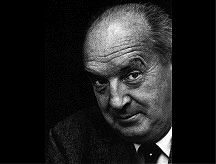
REES 240

|
Crosslistings: REES 240 |
How does narrative form create meaning? Many of the best works of 19th-century Russian literature are stories that reflect upon the nature of storytelling and the capacity of stories to represent truth. In the 20th century, Russian literary theoreticians like Shklovsky, Tynianov, Eikhenbaum, and Bakhtin joined fiction writers in developing a powerful and useful critical vocabulary for describing and understanding narrative. Their work led them and writers of their generation into innovative experiments in short fiction. This course looks at the creative interplay between story writing and thinking about stories in modern Russian literature. The reading for the course will be short stories and short novels by Pushkin, Gogol, Turgenev, Tols toy, Dostoevsky, Chekhov, Mandelstam, Zoshchenko, Babel, Tsvetaeva, Nabokov, Platonov, and Petrushevskaia.
Unless preregistered students attend the first class meeting or communicate directly with the instructor prior to the first class, they will be dropped from the class list. NOTE: Students must still submit a completed Drop/Add form to the Registrar's Office.
COURSE FORMAT: Seminar
Level: UGRD Credit: 1 Gen Ed Area Dept: HA RUSS Grading Mode: Student Option
Prerequisites: NONE
Last Updated on MAR-19-2002
Copyright Wesleyan University, Middletown, Connecticut, 06459